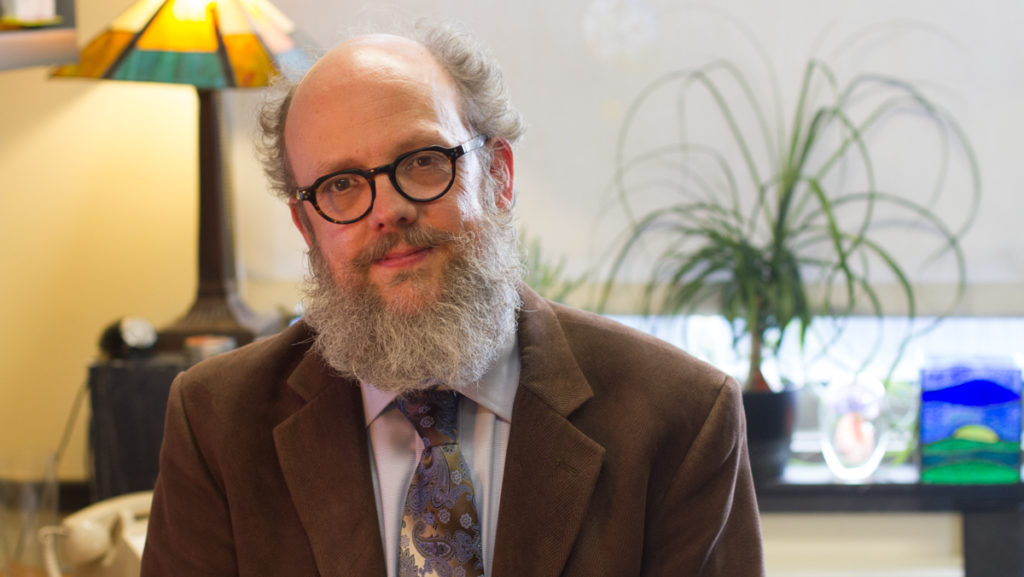While Eric Machan Howd, assistant professor in the Department of Writing, is helping students develop their writing skills, he is also examining ways writing intersects with other art forms and cultures.
Howd recently visited the University of Ljubljana in Slovenia for a conference, “Contacts and Similarities Between Slovenian and American Poetry.” At the conference, he gave a presentation on the similarities among different forms of art and read some of his poetry.
Opinion Editor Meredith Burke spoke with Howd about his experience in Slovenia, his research and how he plans to apply the experience to his work at Ithaca College.
This interview has been edited for length and clarity.
Meredith Burke: What was your paper about?
Eric Howd: My research that I presented at this conference is involving a nonbinary approach to the arts. Specifically, looking at word and song, or poetry and music. … My whole research talks about how music and poetry really have a lot in common and, instead of being binary, it’s more of a continuum where there are certain poets who are very musical in the way that they compose and they read, and, then, we have certain musicians who are very poetic in the lyrics that they write. Most of this came out of my — I had a reaction to Bob Dylan winning the Nobel Prize in literature, thinking “Why is a musician winning a literature prize when there are so many other good candidates for that prize who are authors?” … I look at that in the paper itself; I bring that kind of premise across and then I study a lot of poets who are along that continuum to inspire others to look at the arts that way.
MB: Why do you think it is important to pursue this line of research?
EH: I feel that our world is tending to look at everything in binary ways. You’re this label and you’re going to stay that label when there’s so much more to everybody beyond a label. I think another aspect that’s important to me is that I’m also a practicing musician as well. … So, for me, it was kind of digging into my interest in both of these areas and seeing how they connect with one another and intersect.
MB: Did you present any poetry along with your presentation?
EH: Most of us who were presenting were also creative writers, so we had the opportunity to have our work translated by some of the university students there. … For part of our reading, we read from our own work in English, … and then the student who translated it read it in Slovenian for everybody in the audience, and that was a magical experience to have.
MB: Did you notice any differences between Slovenian and American poetry?
EH: From what I have discovered, Slovenian poetry is highly inspired by beat poetry, like [Allen] Ginsberg. They’re highly inspired by Walt Whitman, so a lot of stream of consciousness poetry. What the Slovenians will say about American poetry — and I got this from the conferences — is that there are so many styles; there are so many, what we call, schools of poetry that they can’t wrap their brains around it. … When they think of American poetry, they see a larger landscape and don’t know quite how to get into it because there’s so many varying styles. … Another portion of what they do a lot is that they bring a lot of folklore — they bring a lot of folk music and they bring a lot of song into their works.
MB: Do you have any plans to incorporate your research or experience into your work at Ithaca College?
EH: Because one of my poetry mentors brings students over to Slovenia for trips, like what I did for my residency program, I think it would be great to bring a bunch of students over from varying disciplines to have a little international trip and think about their field of study, the field of studying in Slovenia and those similarities and differences. … I think, for me, right now it’s building more relationships, going back over there, and then, if I can bring students back it would be wonderful to do that.














